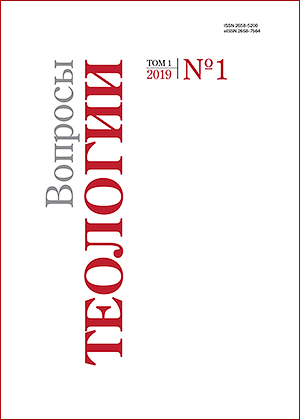A Theistic Interpretation of Schopenhauer’s Atheistic Metaphysics
DOI:
https://doi.org/10.21638/spbu28.2019.105Abstract
In this article, an attempt is made to reinterpret Arthur Schopenhauer’s atheistic metaphysics so that his arguments employed to prove atheistic insights conform to some crucial theistic concepts of German idealism and allow for God as the ultimate principle of reality. For this, his notion of metaphysics is analysed and links between his philosophy and those of Kant, Fichte, and Schelling are drawn. As the other representatives of German Idealism, Schopenhauer claims metaphysics to be a science which goes beyond experience and the world as representation and yet, at the same time, does not transgress the limits of experience in perfect accord with the critique of reason. Accordingly, the problematic ambiguity of this concept of metaphysics, so the argument goes, is shown to have been inherited from Kant’s philosophy and can underlie a theistic interpretation thereof, insofar as the latter allows for a noncontradictory concept of metaphysics. In order to corroborate the main thesis of the paper, the author tackles an analysis of five major steps by means of which Schopenhauer builds his metaphysics of will; also, it is shown that the flaws in his arguments do not offer a reason to assume that the ultimate principle of reality is irrational and entails constant suffering. Above all, inconsistencies in his arguments are brought to light: the circular character of the identification of body and will, as well as the absence of a definition of what is will. Finally, I reconstruct the initial notion of will as it emerged in Schopenhauer’s early notes back from 1811 and 1812. I use this concept to show that, in the light of the Kantian nature of Schopenhauer’s view of metaphysics, it allows for a theistic interpretation of his philosophy, insofar as he took over the concept of the “saint willˮ from Kant and that of the “pristine willˮ from Fichte.
Keywords:
Schopenhauer, atheism, metaphysics, the thing in itself, Kant, Schelling, Fichte
Downloads
References
Downloads
Published
Issue
Section
License
Articles of "Issues of Theology" are open access distributed under the terms of the License Agreement with Saint Petersburg State University, which permits to the authors unrestricted distribution and self-archiving free of charge.




